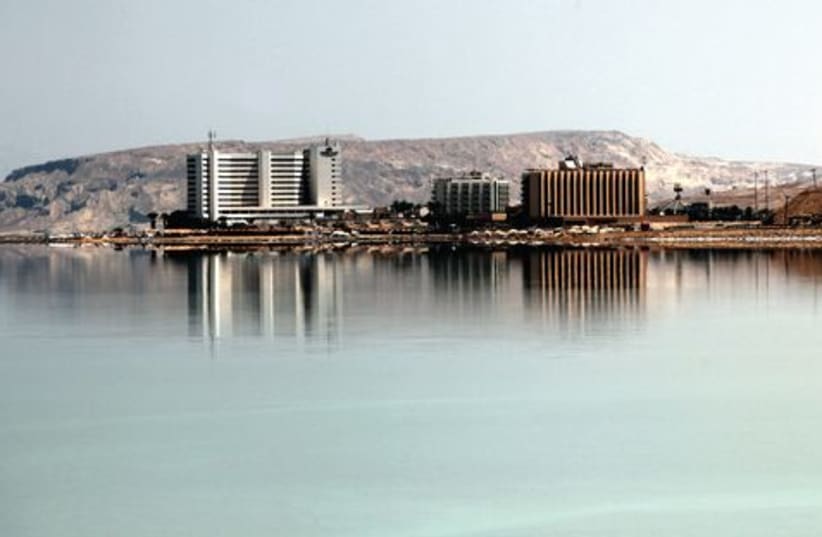That decision, which was applauded by environmental groups, has now led to a new controversy: who will foot the bill.Understanding how all this came about requires considering some history. The Dead Sea is a dead-end for waters flowing from the Sea of Galilee by way of the Jordan River. But the Sea of Galilee has been pumped for decades to provide drinking water, which has been keenly felt downstream, as the waters feeding into the Dead Sea have been reduced to a trickle. That, in turn, has led to a sharp drop in the Dead Sea’s water level in its northern basin, at an estimated rate of 1.2 meters per year.The southern basin, according to geological experts, would have long ago disappeared entirely. But that would have meant shutting down the Dead Sea Works, a company that is the world’s fourth largest producer of potash, which it extracts from the salty lake along with magnesium chloride and other minerals. To maintain the southern basin, channels carry water from the northern basin to the southern basin, which begins a bit south of where Masada looms over the shoreline.The mineral extraction process used by the Dead Sea Works, however, has a by-product: salt that slowly accumulates along the bottom of the lake. It may seem at first glance that salt accumulation in the Dead Sea, which is nearly nine times as saline as the Atlantic and Pacific oceans in any case, would be insignificant. But so much salt has been gathered at the bottom – several meters high by now – that the water level in the southern basin has steadily crept up, at a rate of 20 centimeters a year. Unless something is done, the waters could literally flood into hotel lobbies as early as 2017.The Dead Sea Preservation Government Company, a branch of the Tourism Ministry, commissioned a committee to produce a scientific study to determine how to solve the problem, which was delivered earlier this year. The committee considered three alternatives.The first proposal to build a lagoon for water drainage was discarded early on because of its potentially negative ecological effects. That left either mining the salt out of the Dead Sea, or knocking down the hotels to rebuild them on higher ground, ideas that had been mooted for several years.Based on straightforward cost comparison, moving the hotels would actually be the less expensive option; a hotel rebuilding project is estimated as costing between three to four billion shekels (about $1 billion), only half as much as a salt harvest. But the committee recommended salt removal, regarding the accumulated salt to be de facto industrial waste produced by the Dead Sea Works, which therefore has the responsibility of cleaning up the waste.The committee’s recommendations were accepted by the government, putting the Dead Sea Works on the defensive, after its spokesmen said that the company cannot afford to pay for a $2 billion cleanup effort on its own. In an effort to boost its public image as it prepares to fight the decision, the company has launched a public relations campaign of advertisements claiming that the mineral industry has been primarily responsible for reviving life and settlement in the southern Dead Sea region.If a compromise between the Dead Sea Works and the government on who will foot the immense salt harvest bill is not reached by negotiations, the issue could end in a court case, taking years to resolve. Then the question may be which will come first – a final decision on the matter, or the first floods in the hotels along the southern basin of the Dead Sea.
Dead Sea Dilemma
The hotels on the southwest shore of the Dead Sea might be forced to be torn down and rebuilt further away, as evaporation ponds threaten to flood them.
